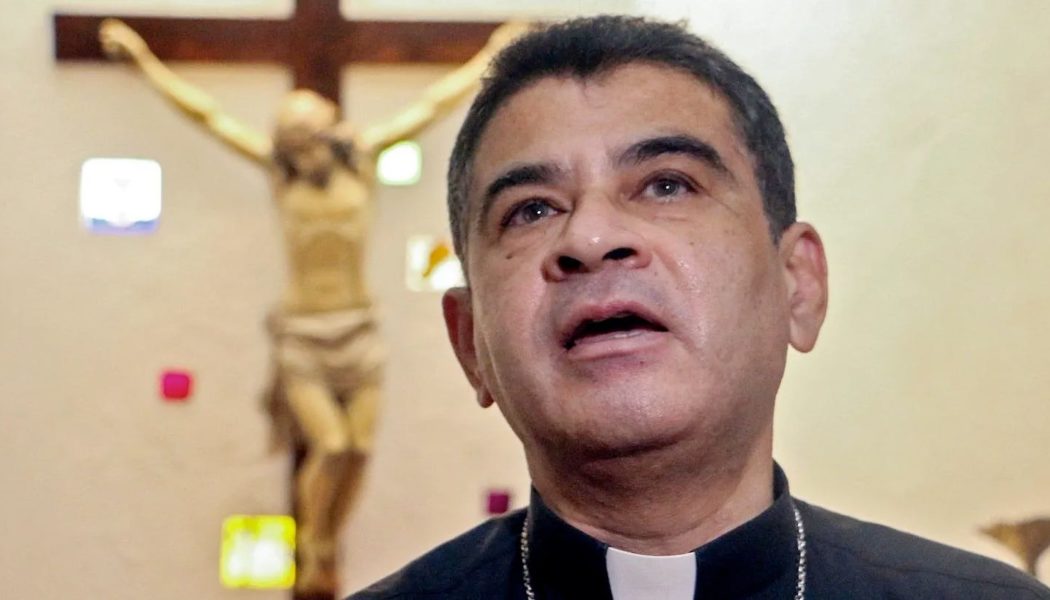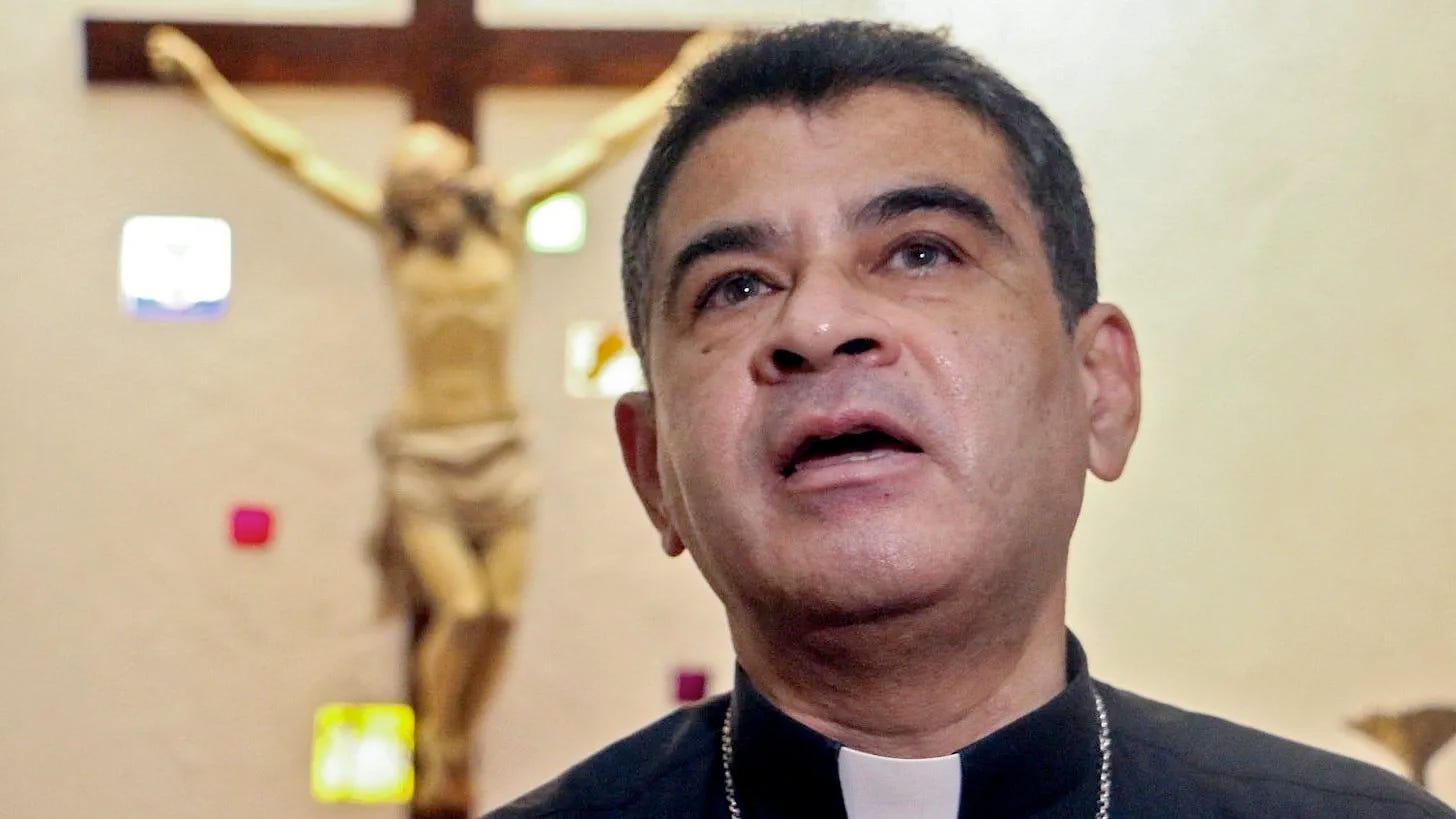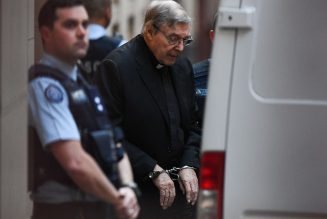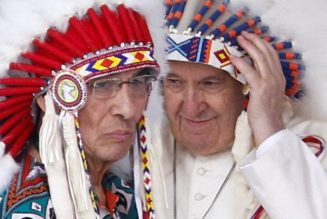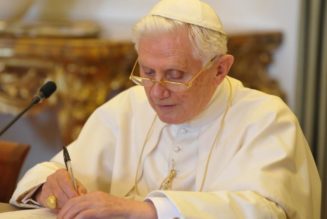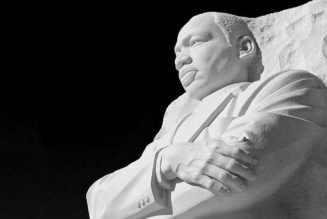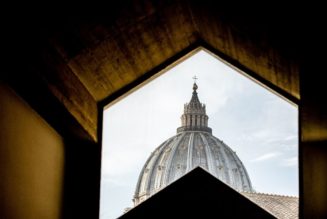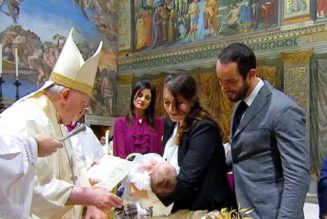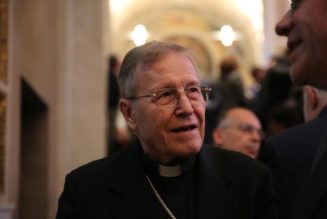The regime of Nicaraguan dictator Daniel Ortega freed the imprisoned Bishop Rolando José Álvarez of Matagalpa on Sunday, and expelled the prelate from the country.
Álvarez arrived in Vatican City Jan. 14, directly after his release.
The bishop had been sentenced to 26 years in prison, and has been a political prisoner in Nicaragua since August 2022, along with 18 other priests and seminarians who were imprisoned in December 2023.
Among the clerics exiled with Álvarez is Bishop Isidoro Mora, of the Diocese of Siuna, along with 14 priests and two seminarians who were also being held as political prisoners.
Since that group of priests and seminarians was detained in Nicaragua last month, little was known about their whereabouts or the charges against them; several of the detained priests were over 65 years old or had serious health problems.
Human rights activists in Nicaragua have argued that the clerics were arrested as part of a concerted effort by the Nicaraguan regime to pressure the Vatican to give the government formal oversight of episcopal appointments.
A statement from the regime issued on Sunday confirmed the deportation of the clerics, stating that their release was secured through diplomacy. The statement explained that “agreements with the Holy See that have guaranteed the sending and receiving in the Vatican of bishops, priests and seminarians.”
“The Presidency of the Republic, the Government of Reconciliation and National Unity and the People of Nicaragua, deeply thank the Holy Father, Pope Francis; and the Secretariat of State of the Holy See; to its [prefect], His Most Reverend Eminence, Pietro Cardinal Parolin, and his work team, for the very respectful and discreet coordination carried out to make possible the trip to the Vatican of two bishops, fifteen priests and two seminarians,” the text said.
The list of exiles is led by Bishop Álvarez, detained by the Ortega dictatorship since August 2022 and sentenced to 26 years in prison in February 2023. Despite attempts to send him into exile, Álvarez initially rejected this possibility during his first months of captivity.
In December, The Pillar reported that the bishop was open to exiled from the country amid reports of his failing health, but when a group of priests and political prisoners were deported to the United States in February 2022, Álvarez did not join them because the conditions of his potential release were never adequately explained to him and he was asked to sign a blank sheet of paper which could be used as a confession.
The Ortega regime also expelled another imprisoned bishop on Sunday, Bishop Isidoro Mora of the Diocese of Siuna, who was detained after he mentioned Álvarez in a homily on December 19.
“I would like to express the greetings of the episcopal conference [of Nicaragua]. We are always united praying for this beloved Diocese of Matagalpa, praying for Monsignor Rolando, praying for the journey of each one of you” Mora said in his Dec. 19 homily, commemorating the 99th anniversary of the Diocese of Matagalpa, of which he was vicar general until 2021.
“We are united in prayer, in communion, in faith, in love, in tenderness.”
Mora was arrested the day after preaching that homily, along with two seminarians, on their way to celebrate confirmations in his diocese.
Along with the two bishops, Sunday’s list of expelled clerics includes more than a dozen priests, including Fr. Óscar Escoto and Fr. Jader Guido, who were briefly detained on Christmas Eve and released.
The exiled priests, apart from Bishops Álvarez and Mora, include:
-
Monsignor Carlos Avilés, vicar general of the Archdiocese of Managua.
-
Monsignor Óscar Escoto Salgado, vicar general of the Diocese of Matagalpa.
-
Fr. Ismael Reineiro Serrano Gudiel, pastor of the San Miguel Arcángel parish, and exorcist of the Archdiocese of Managua.
-
Monsignor Silvio Fonseca, pastor of Santa Faz parish, and vicar of family, children and youth of the Archdiocese of Managua.
-
Fr. Pablo Villafranca, pastor of the Nuestra Señor de Veracruz parish in Nindirí, of the Archdiocese of Managua.
-
Fr. Héctor Treminio, pastor of the Santo Cristo de Esquipulas parish in the Archdiocese of Managua.
-
Monsignor Marcos Díaz Prado, pastor of the Santo Tomás Apóstol church of Puerto de Corinto, Diocese of León
-
Fr. Mykel Monterrey, pastor of the Nuestra Señora de Candelaria parish of the Archdiocese of Managua
-
Fr. Raúl Zamora, pastor of the Jesús de la Divina Misericordia parish of the Archdiocese of Managua.
-
Fr. Gerardo José Rodríguez, pastor of the Purísima Concepción parish of the Archdiocese of Managua.
-
Fr.Miguel Mántica, pastor of the San Francisco de Asís parish of the Archdiocese of Managua.
-
Fr. Jhader Hernández, pastor of the Mother of the Divine Pastor parish in Nejapa, of the Archdiocese of Managua.
-
Fr. Ismael Serrano, pastor of the San Miguel Arcángel parish of the Archdiocese of Managua.
-
Fr. José Gustavo Sandino Ochoa, pastor of Nuestra Señora de los Dolores parish in Santa María de Pantasma, Diocese of Jinotega.
-
Fr. Jader Danilo Guido Acosta, parochial vicar of the San Pedro Apóstol Cathedral of Matagalpa.
-
Fr. Fernando Calero, pastor of Our Lady of Fátima in Rancho Grande parish of the Diocese of Matagalpa.
-
The two banished seminarians were Lester de Jesús Sáenz Centeno and Tonny Daniel Palacio Sequeira.
News of the deportations was confirmed by Bishop Silvio Báez, who mentioned negotiations between the United States, the Vatican and the Nicaraguan regime during a homily Jan. 14.
“According to the information that I began to receive this morning both from Rome and from Washington and Managua… the bishops, priests and seminarians released from prison who were unjustly kidnapped because they were innocent, have landed at the Fiumicino airport in Rome and have been welcomed. for the Holy See,” said Báez on Sunday, before concluding the homily at the Santa Agatha parish in Miami.
On Sunday afternoon, photos were published of Bishop Rolando Álvarez and Bishop Isidoro Mora concelebrating a mass in Rome, and another photo of the exiled priests being received by Cardinal Pietro Parolin, Secretary of State of the Holy See.
The deportation is the third major expulsion of Nicaraguan priests from their country in less than one year.
In February 2023, four priests, a transitional deacon and two seminarians were deported to the United States.
In October 2023, 12 priests were deported, and on Sunday, 17 priests and 2 seminarians were exiled.
In total, approximately 110 priests have been exiled from Nicaragua since 2018. Other priests have fled Nicaragua after receiving threats, and still others have been denied entry to Nicaragua after traveling abroad.
The exact number of exiled priests is unknown; for security reasons, many priests do not make their exile public until months after they have left Nicaragua.
But the number of exiled priests represents about 15% of the Nicaraguan Catholic clergy.
Local sources had told The Pillar that the situation in the diocese of Matagalpa – where Álvarez is bishop – is particularly difficult. The diocese had 51 priests in 2019, and today has approximately 20.
Three Nicaraguan dioceses have bishops in exile — Jinotega, led by Bishop Mora, along with Matagalpa and Esteli, both led by Bishop Álvarez.
At present, two Nicaraguan dioceses are led by bishops who have passed the retirement age — Bluefields and Jinotega — and the Cardinal Leopoldo Brenes of Managua will turn 75 in March, which means that 6 of the 9 Nicaraguan dioceses will be in a situation of irregular leadership.
Given that a growing number of Nicaraguan clerics seems to remain willing to denounce the Ortega regime, 2024 could be even more of a challenge for the Church in Nicaragua.
If Ortega does not eventually silence clerical opposition, and secure favorable episcopal appointments, the politician is likely to continue exiling Nicaraguan priests and bishops until the institutional footprint of the Catholic Church is significantly diminished in Nicaragua — Ortega has already pursued a similar path with universities and political parties in Nicaragua.
Comments 13
Services Marketplace – Listings, Bookings & Reviews
